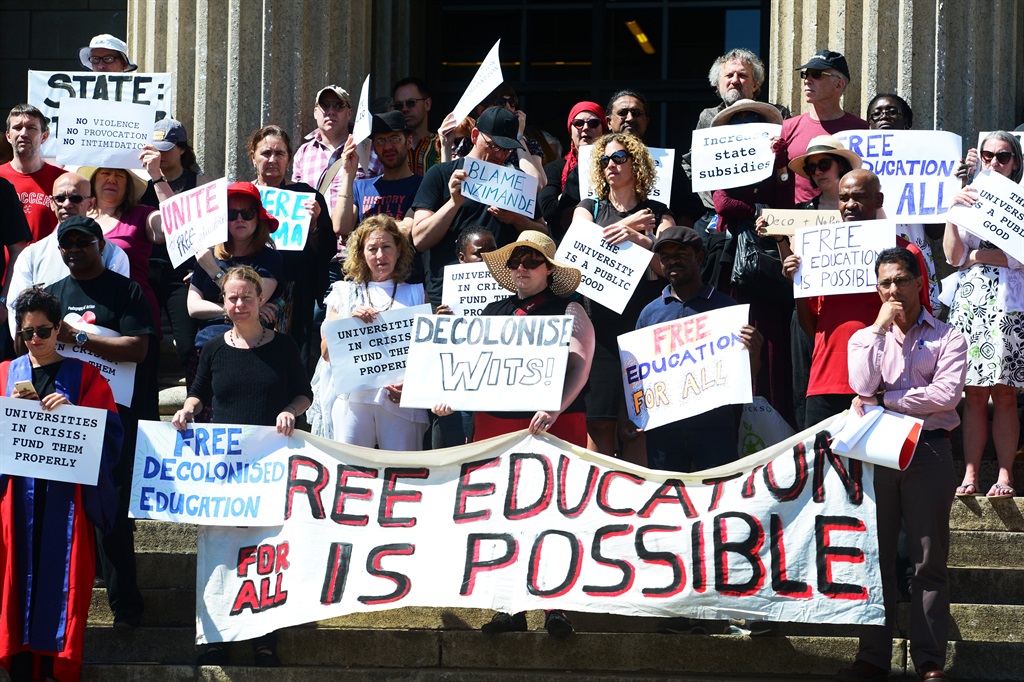
Thanks to student protests across South Africa over the past three years, decolonisation has been at the forefront of public discourse. Closely linked to the call for decolonisation has been the renewed drive towards Pan-Africanism.
Much like the students of the June 16 Soweto uprising who turned the tide against an unjust political system and Bantu education, students today are at their own critical moment against exclusionary pedagogy and epistemology.
The University of South Africa’s Bongani Nyoka wrote an eye-opening piece, Negation and Affirmation: A Critique of Sociology in South Africa, that detailed how the discipline of sociology in South Africa had historically ignored the work of black thinkers. His insights can easily be applied to many other academic disciplines in South Africa.
Bongani Nyoka by CityPress on Scribd
This exclusion is not exclusive to South Africa but part of the colonial condition. In the 1970s, Professor Ade Ajayi and others created the Ibadan School of History to ensure that African history, as well as those from oral sources, was not lost. Other centres of African excellence were the Dakar School of Culture and the Dar es Salaam School of Political Economy. Sadly, these schools are no longer as pre-eminent as they once were.
Young people primarily led the Pan-African movement of the 1950s and 1960s. But their battles were not complete because the vestiges of colonialism were never shaken off, and nowhere is this more evident than in the economy as well as in higher education.
The economies of many African nations, including South Africa, were structured to mimic their colonial forebears.
The university, as it is currently organised, is created to provide white-collar knowledge workers for the economy, which is not in itself a bad thing, but enforces a class system of inequality that does little to improve the conditions of society as a whole.
Moreover, a dichotomy is formed whereby only a privileged few are able to participate meaningfully in the economy while entrenching inequality even more.
Pan-Africanism is as important in the 21st century as it was in the 1960s. Perhaps, even more, as we collectively push for continental integration and economic freedom.
For Pan-Africanism to once again take flight, the conversation has to be inter-generational.
The youth-driven social movements, from #Rhodesmustfall to #DecolonisationOfKnowledge, have highlighted that there is a willingness to disrupt the colonial-style knowledge economy.
These ideological battles should not be feared, but welcomed in light of the challenges facing young people in an economy that is rapidly shrinking, and excluding even larger numbers of people. The only way we would succeed in making a meaningful difference is to embrace “other ways of knowing”.
Pre-colonial Africa was a hotbed of knowledge that, in many areas, even surpassed what was available in Europe.
An example is the empire of Benin that existed in south west Nigeria and had colonists marvelling at their advanced architectural and mathematical technology.
Much of that knowledge was wiped out in what University of Pretoria’s Professor Siphamandla Zondi termed an “epistemicide”.
Universities around the country have answered the clarion call issued by our young people and have begun to look at ways to decolonise the curriculum.
The University of Johannesburg, in particular, has launched its efforts at decolonisation in earnest.
One of its major initiatives is the hosting of an upcoming conference on the “Pan-African Pantheon”, which will explore the work of about 35 Pan-African thinkers from across Africa as well as in the diaspora.
The rationale of the conference is to create a body of knowledge that can be incorporated into the curriculum as well as develop a centre of knowledge production in the form of a “Johannesburg School of Pan-Africanism”.
Johannesburg is the perfect place to host such a conference, because it is a cultural Afropolitan melting pot with a young population. It is for this very reason that the conference begins on, and commemorates, Youth Day on June 16 and ends on June 18.
Pan-Africanism has always been a youth-driven movement. The establishment of the Pan-African Youth Movement a year earlier preceded the Organisation of African Unity, which was created in 1963.
The likes of the Congo’s Patrice Lumumba and Ghana’s Kwame Nkrumah shaped the ideological and physical battles that dismantled the shackles of colonialism and apartheid.
The challenge for the youth in the 21st century is not only to be at the forefront of creating these conversations, but also to lead the charge in creating new knowledge that benefits broader society.
• Dr Odilile Ayodele is the Research Coordinator at the Institute for Pan-African Thought and Conversation as well as a Post-Doctoral Fellow under the South African Research Chair Initiative chair for African Diplomacy and Foreign Policy, both at the University of Johannesburg.




 Publications
Publications
 Partners
Partners








